The British are coming: do UK rock bands still need to ‘break America’?
The mythology of ‘breaking America’ exists today in the hearts and minds of UK rock bands, but the reality of years in tour vans often leads to empty pockets. Rolling Stone UK joins Manchester pop rock band Hot Milk in Los Angeles on their journey to grow a fanbase in the States to see how it’s done
By Hannah Ewens
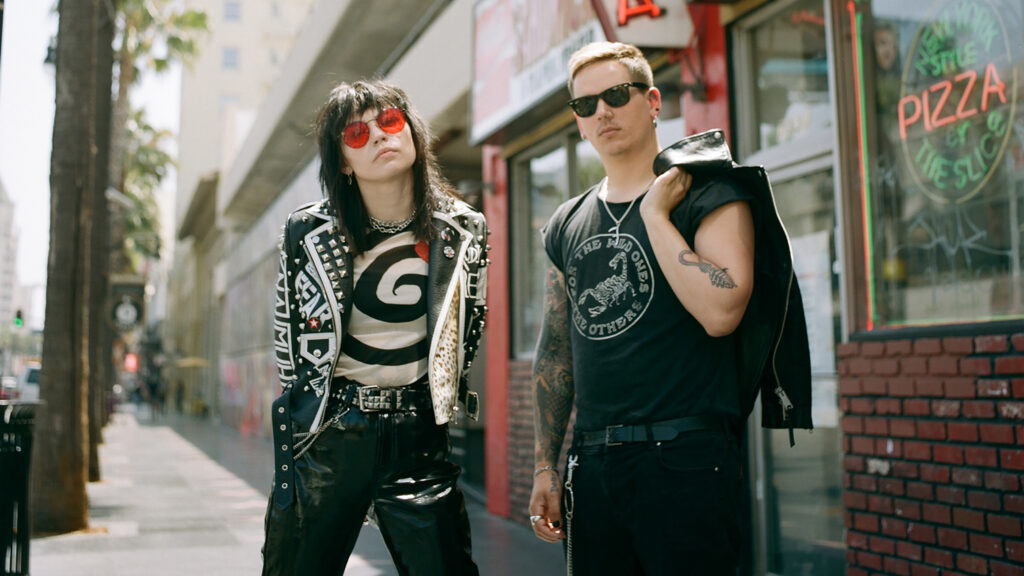
Inside an aggressively air-conditioned art deco Hollywood building, a band from Manchester is playing onstage to a nearly empty room. A camera roves around them, as four other middle-aged cameramen record the performance from every angle.
“What you sayin’?” the frontwoman asks to hype up an imaginary crowd. Their music isn’t too unlike Californian pop punk — power chords, youthful angst and elation — so they make sense in this city even if the accents are a novelty. This is a 1.30pm soundcheck for a slot on Jimmy Kimmel Live!, the sort of talkshow normally frequented by pop stars or bands with a major upcoming release. No one here knows who they are, yet.
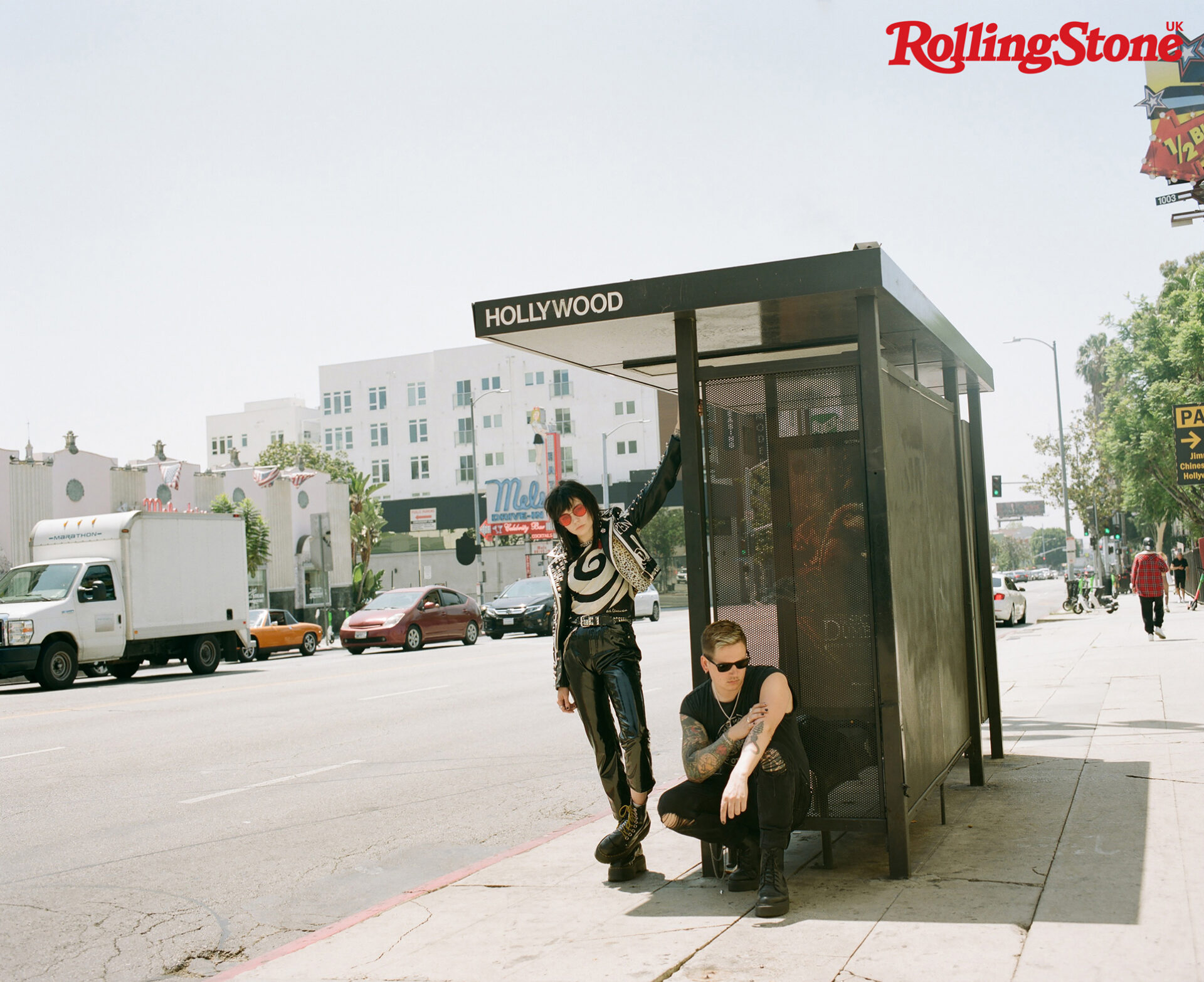
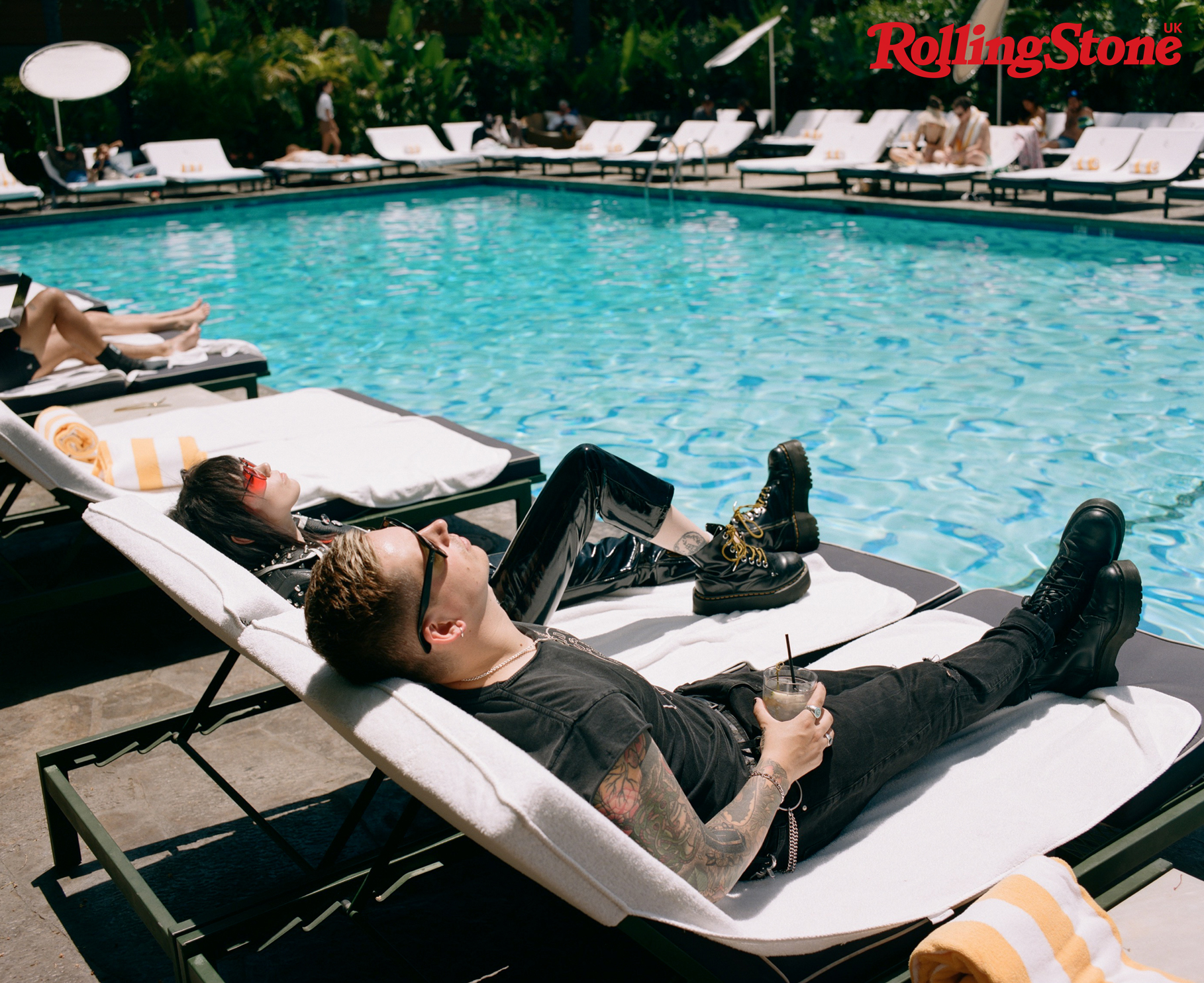
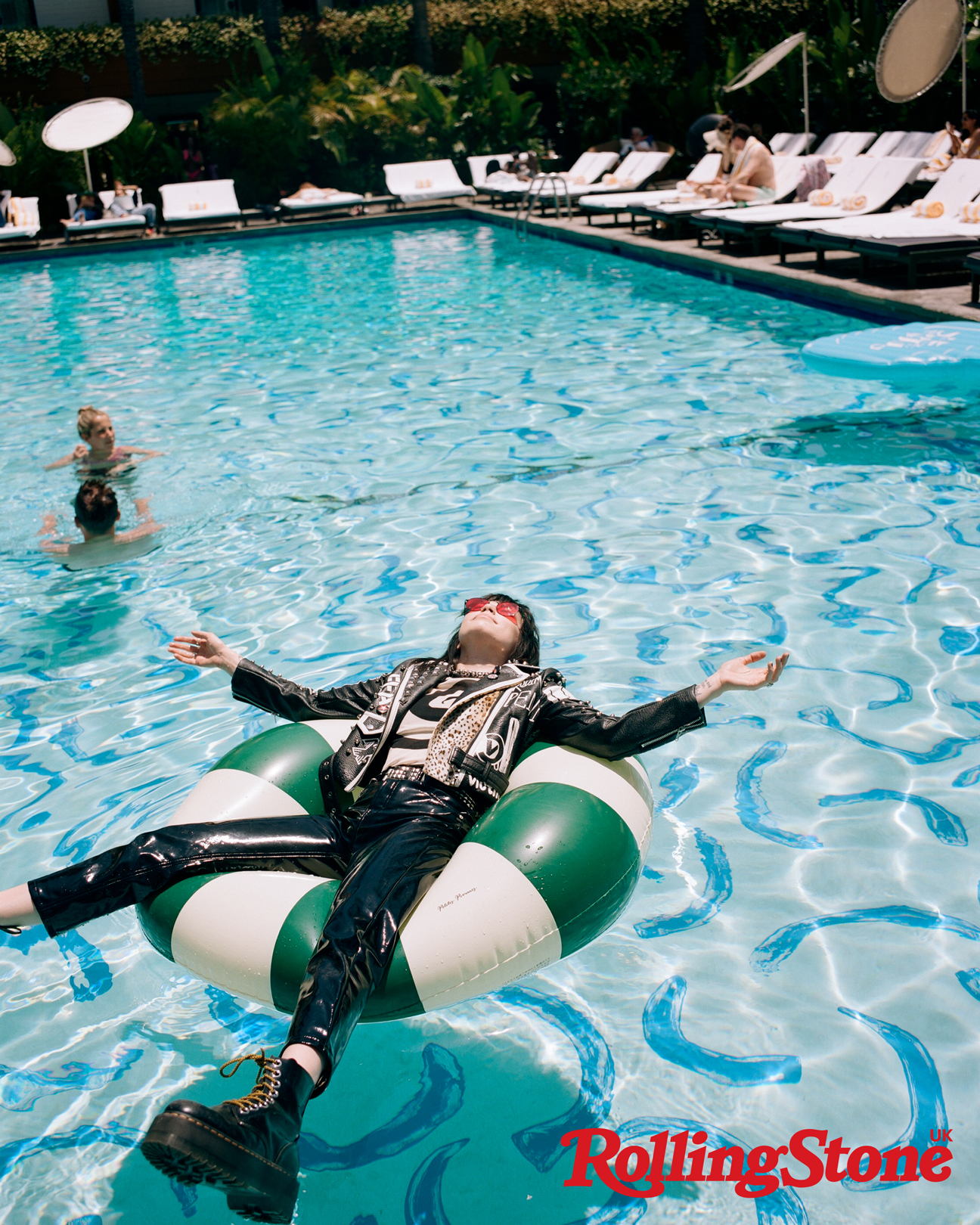
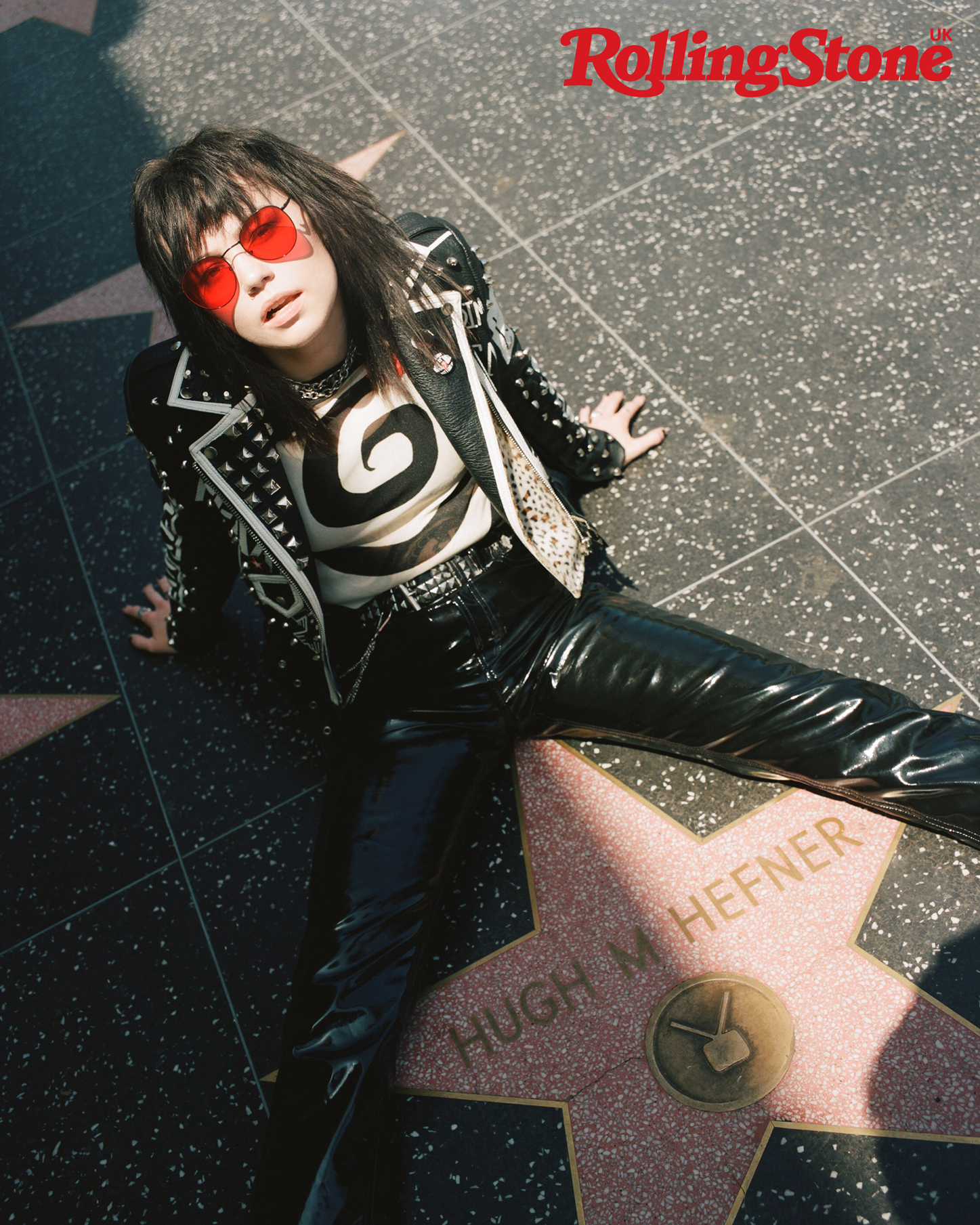
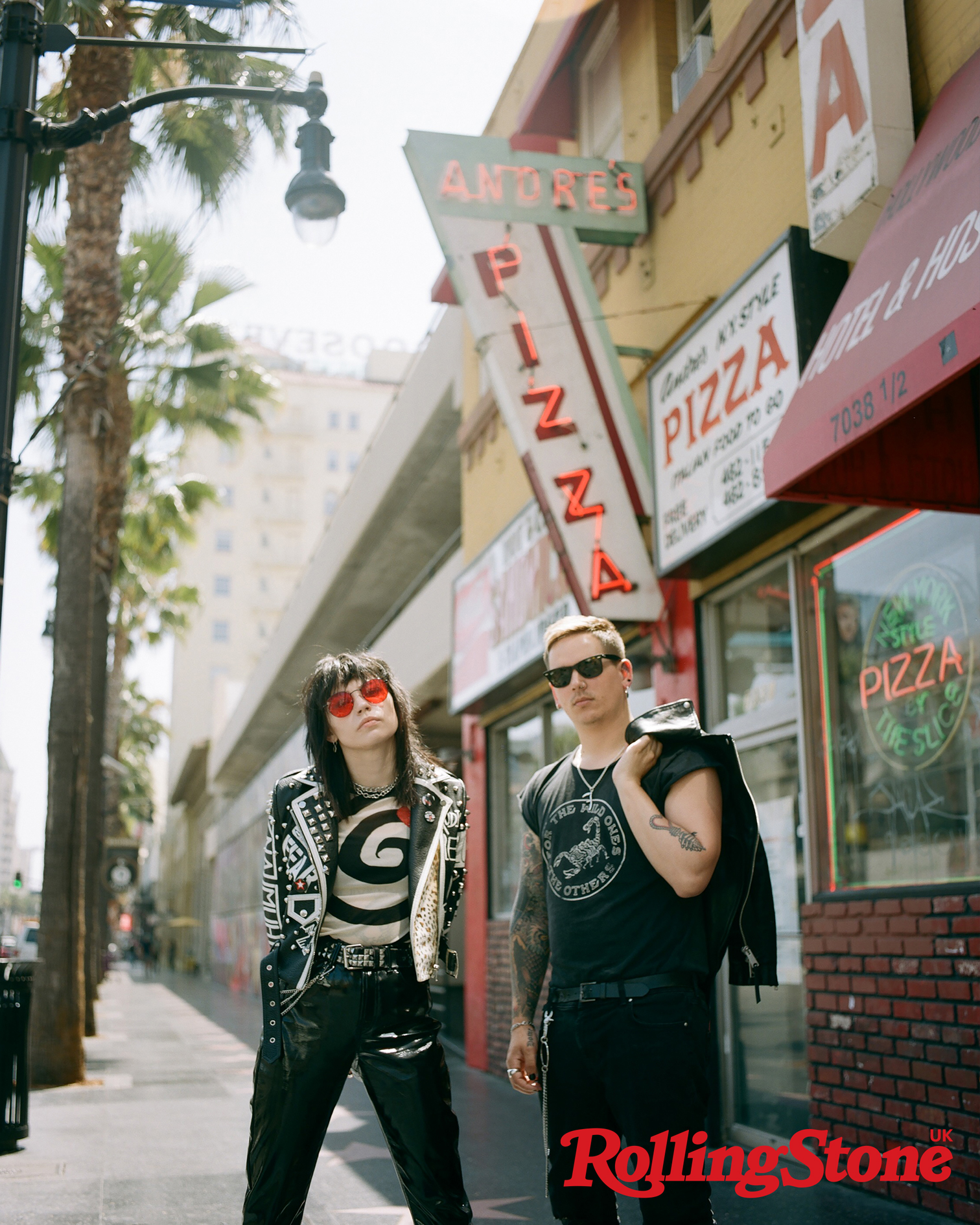
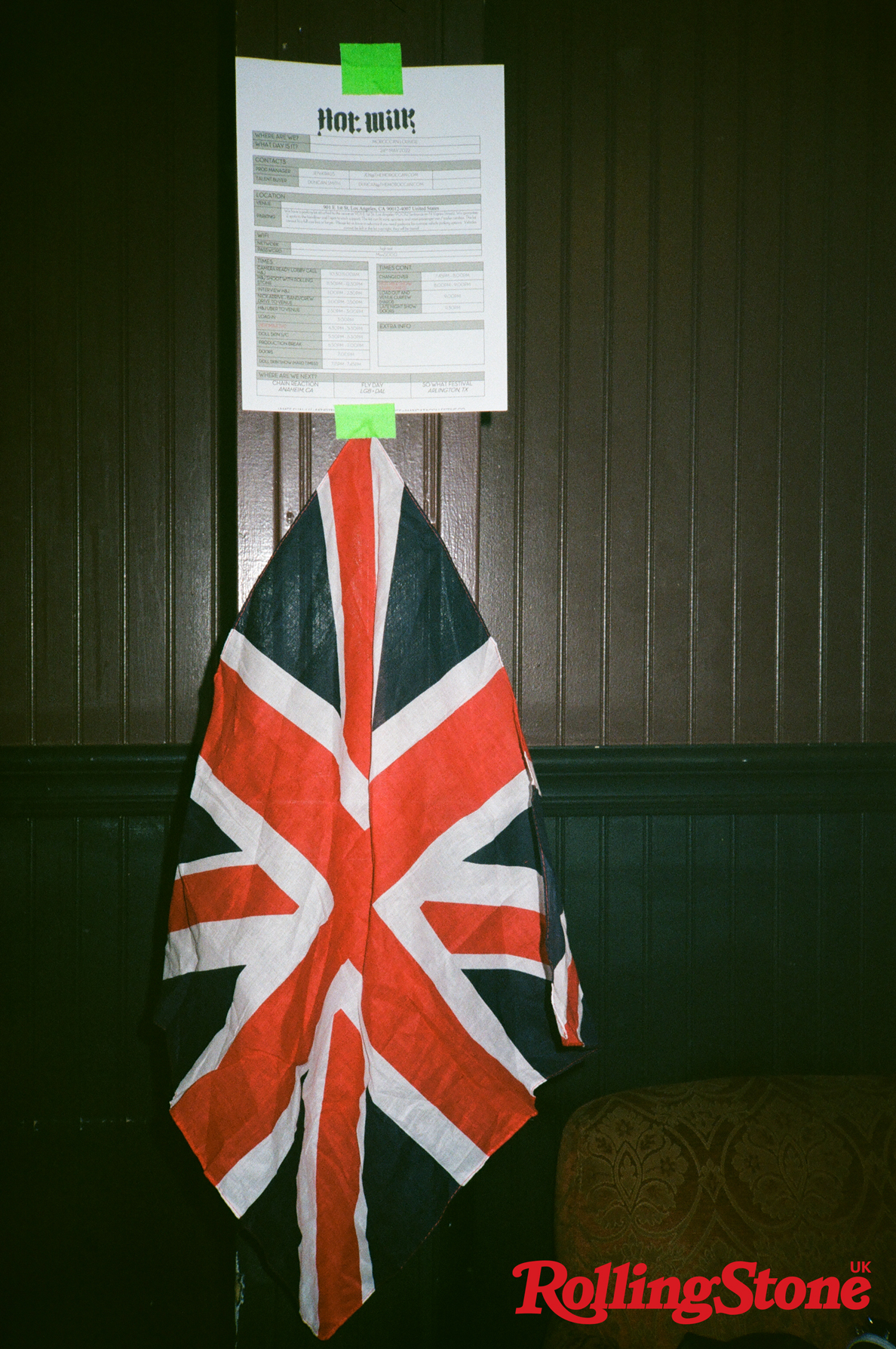
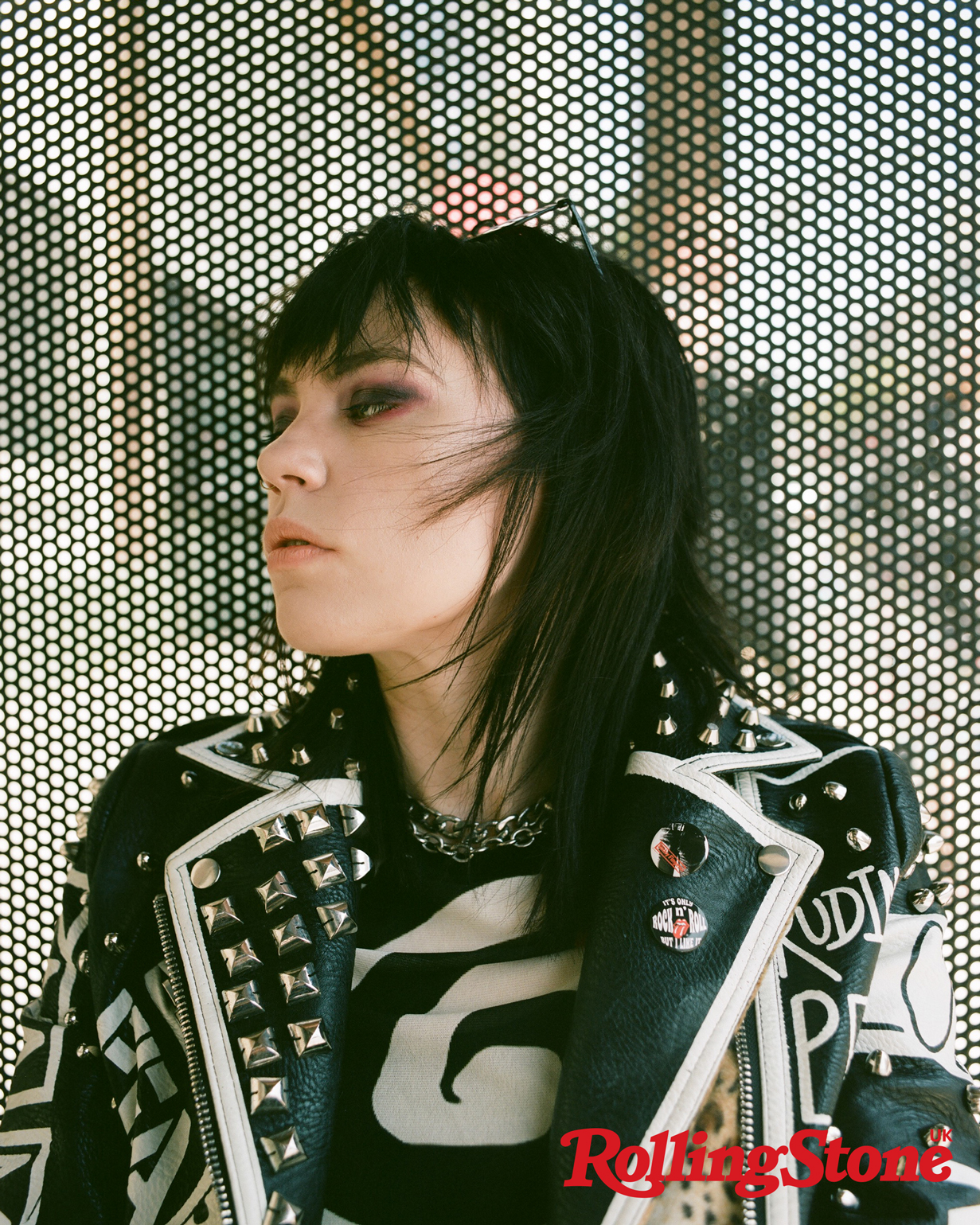
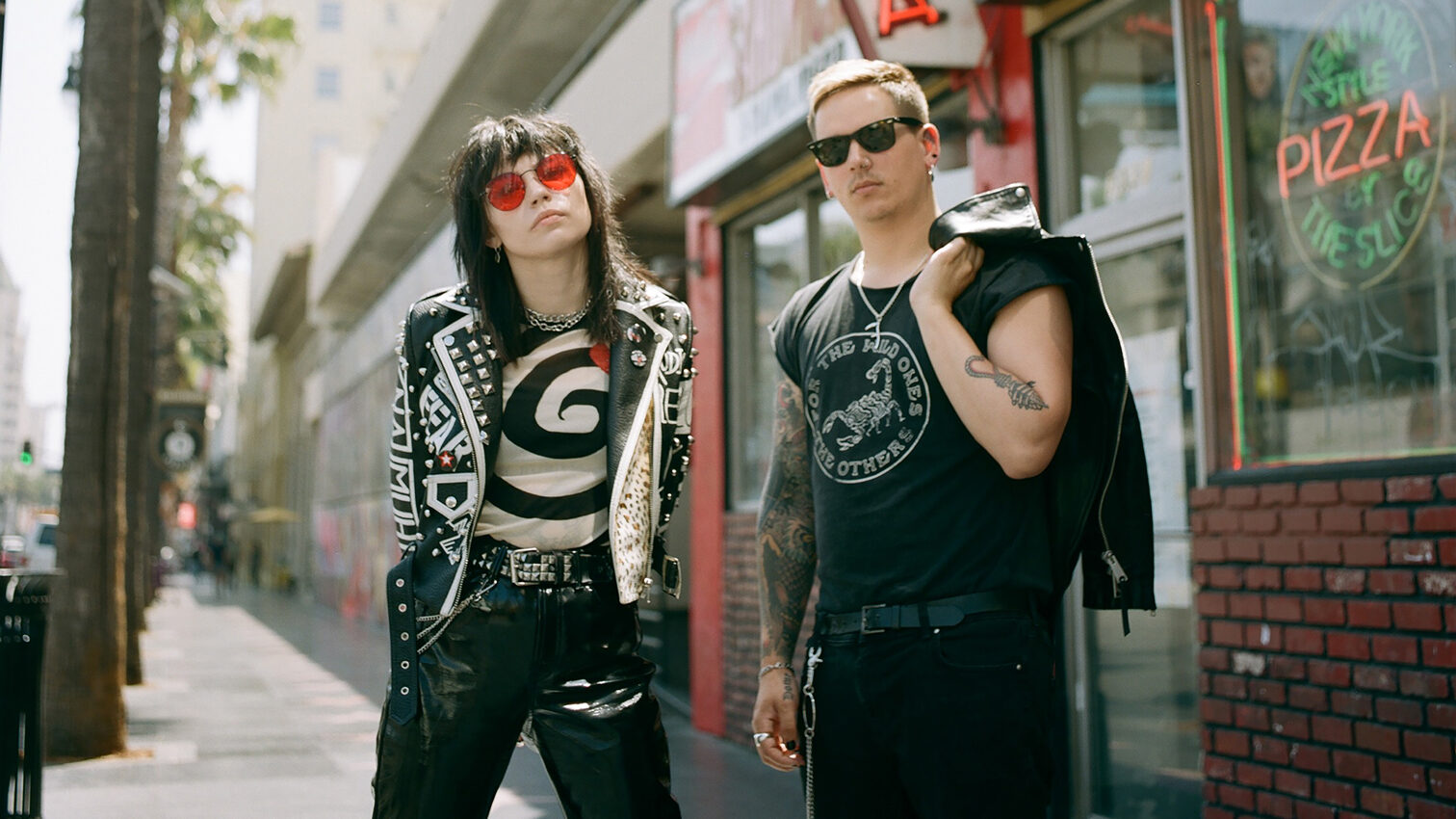
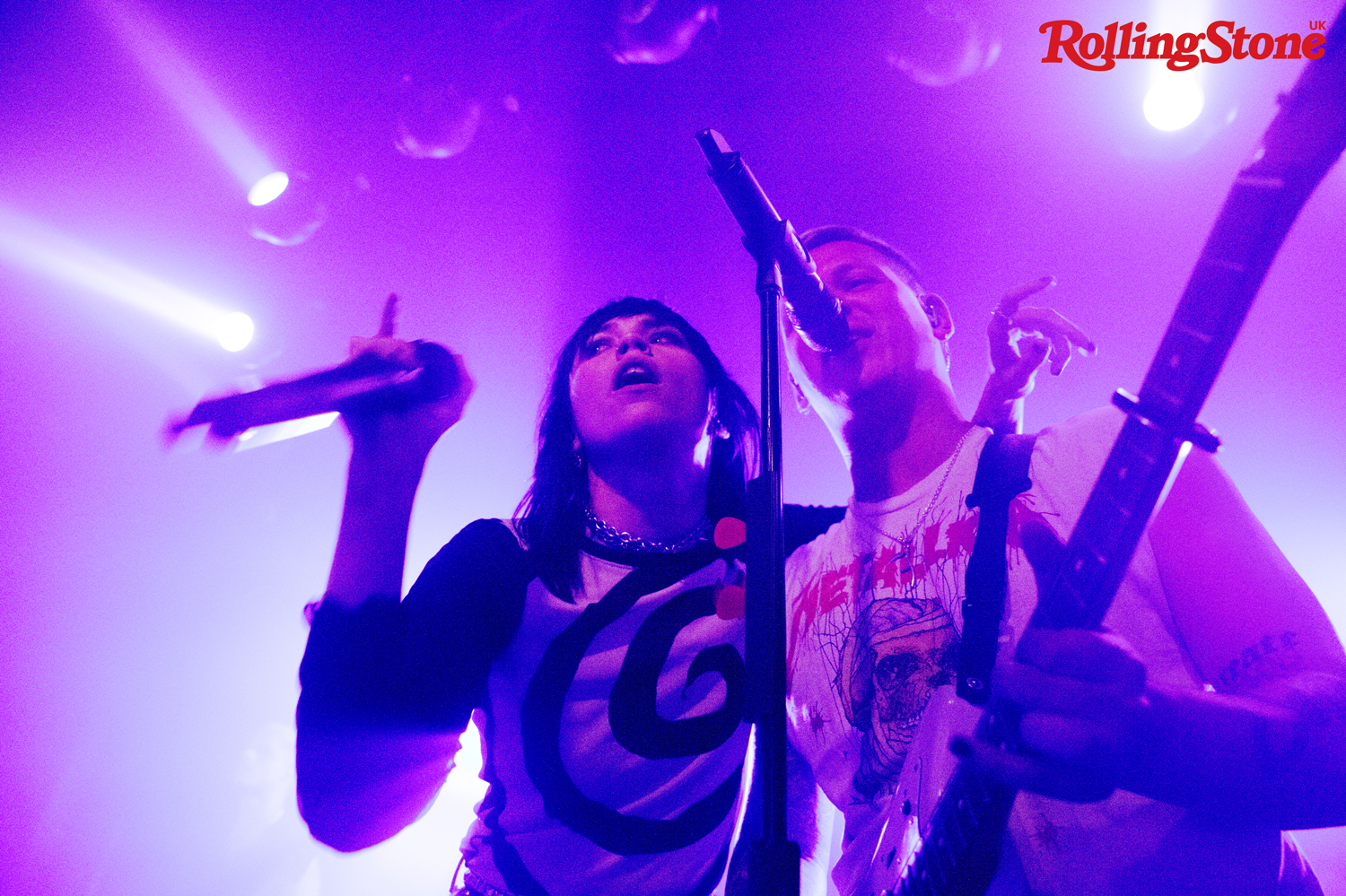
As Han Mee, Jim Shaw and the rest of Hot Milk begin to trail out of the building, an enormous security guy notices them. He makes some deadpan joke to Mee, a veritable Joan Jett lookalike: “You should dress more rock’n’roll, then I’d know you’re with the band.” She spins around, all limbs, makes a quip back at him, and he replies, excitedly, “I’m kidding, I love my rock stars to look like this!”
Pop rock band Hot Milk are going where many British acts have gone before: taking bold steps onto US soil to show the Americans who they are. Back at their hotel’s pool, the band all have a cocktail and charge it to the room, hoping the label will pay the tab. They spread out across the loungers like happy starfish. The palm trees, cornflower sky and the sun’s warmth on their leather jackets is the cliché LA rock-star moment they’ve been waiting for. The band have been on the road in an RV playing their first headline US shows in little clubs and venues. It’s been unglamorous and exhausting, but it’s exactly what they spent the coronavirus pandemic fantasising about. This is the American dream: for UK bands, playing to adoring US fans is almost always a common yet faraway goal.
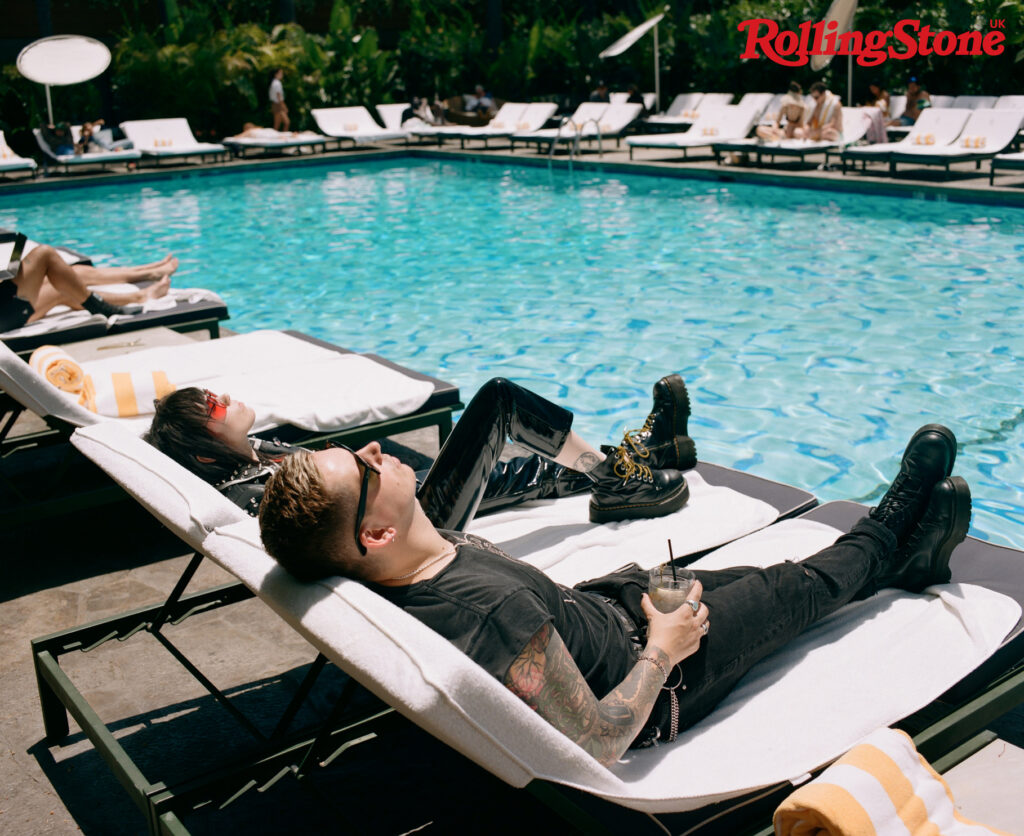
There’s something undeniably romantic about America to rock lovers. Whether you were a teenager during the sleazy 80s hair metal years, in the 90s as grunge went mainstream, or in the 00s when emo and mall rock had scene kids stuck to their computer screens playing around on Myspace, the epicentre of all of these distinctive musical eras was the US.
“I think I was always very attracted to America as a touring world; it was so far away from my bedroom in Preston that it felt almost like Disneyland. You do put it on a pedestal as a music fan and musician,” says Mee.
“If we didn’t love it, we’d go the way of so many bands”
— Han Mee, Hot Milk
Shaw agrees with his bandmate. “With the likes of MTV and the rock culture that we grew up with, it was heavily influenced by America: an abundance of Blink-182 and My Chemical Romance,” he says. “America was so unobtainable — it was a different life.”
When the British successfully invade the US, they capture the attention of the nation in a striking way. It all began in 1964 when The Beatles arrived in America to 5,000 fans, mostly young girls, crowded in the airport. The Fab Four achieved what no other British artist had: they topped the US charts. That decade, other English bands — The Rolling Stones, The Who, The Kinks and The Animals — defined the sound of the 60s both at home and overseas and pushed their US counterparts like The Beach Boys and The Doors to do better. This was dubbed the “British invasion”, a wave of anglophilia that even led to some of these acts being more popular in the States than back in the UK.
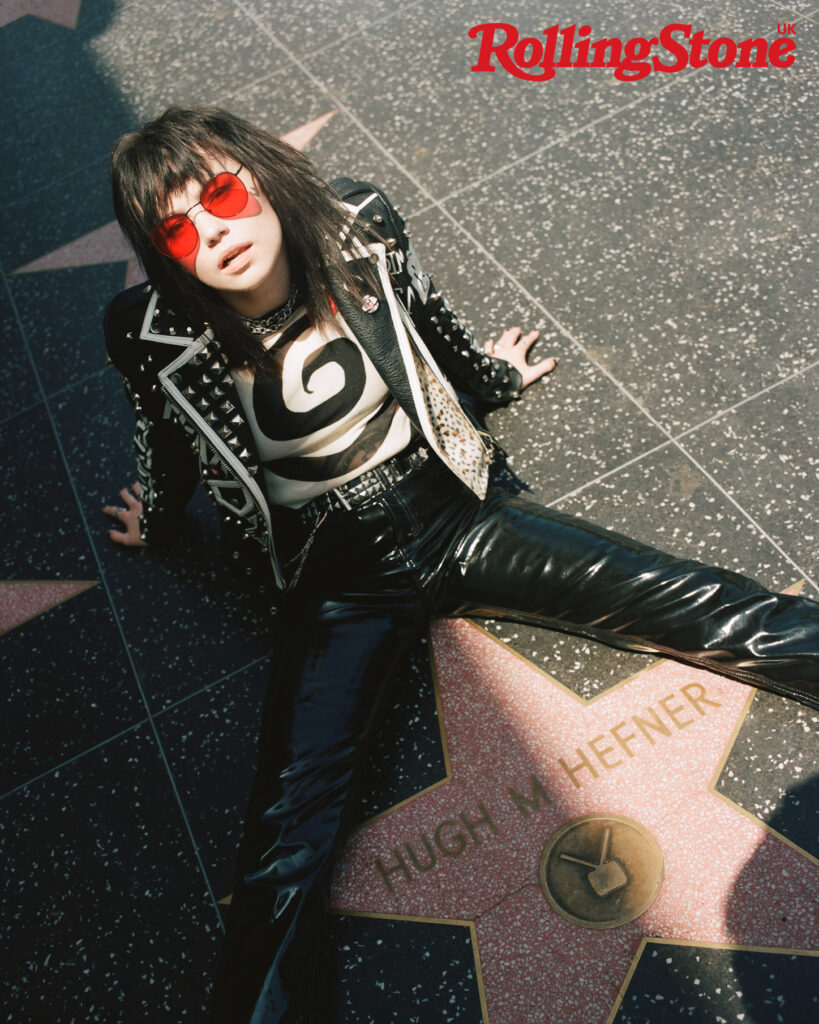
Beyond that period, something changed. Although when acts broke America, they broke big — One Direction and Adele are two obvious examples — it was rare for British acts to get No. 1s or to penetrate the culture in any significant way. Often, artists just don’t translate. Oasis, Manic Street Preachers and Stereophonics all made the trek and returned empty-handed and with bruised egos. The subsequent wave of 00s British indie didn’t make sense to America, either (remember The Kooks, The Vaccines, Kaiser Chiefs?). Neither did Robbie Williams. The common denominator was that these exports were just too British.
Julie Weir has worked in the alternative and rock music industry since the 90s and is currently director of the Sony rock imprint, Music For Nations. She signed the UK rock giants Bring Me The Horizon and Bullet For My Valentine, as well as Hot Milk. “It’s a decades-old concept,” Weir says of breaking America. “The UK and the US are the two biggest territories for music, especially in the rock world. The UK looks to the US for what’s going on there, and the US also looks to the UK. It’s almost like a yin-and-yang, symbiotic relationship, but just because you’re successful in one market doesn’t mean you will be successful in both. Some UK bands the US just do not get, and vice versa, but because of the size of the audience in the US, their bands do often translate to the UK easier.”
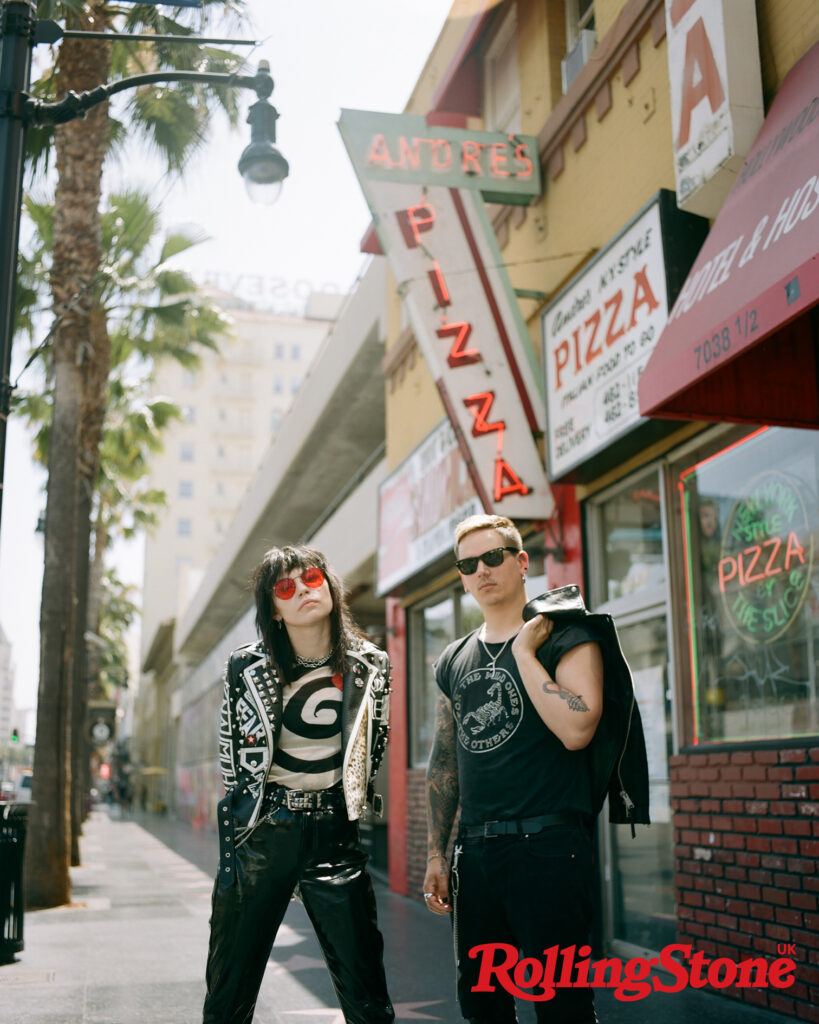
That doesn’t mean our bands will stop trying. “Breaking America” means something different to each band and their team anyway. Hot Milk’s PR, Hayley Connelly, says, “It might be just playing sold-out club shows and getting some good press looks, or it might be aiming for larger venues, big festivals, inflated streaming numbers and international press covers and TV. It is all subjective on what that success is, of course, depending on the artist.” She notes that in the past, bands of this type would have played US travelling rock festival Warped Tour to help them find their fanbase. Now that’s gone, it’s somewhat more difficult, with playlist placement, US festival slots and support tours in its place.
One of the only bands to break America in the past two decades are Rolling Stone UK cover stars, The 1975. Jamie Oborne, their manager and founder of label Dirty Hit, says that if you manage to break the mammoth country, you have enormous potential to earn money.
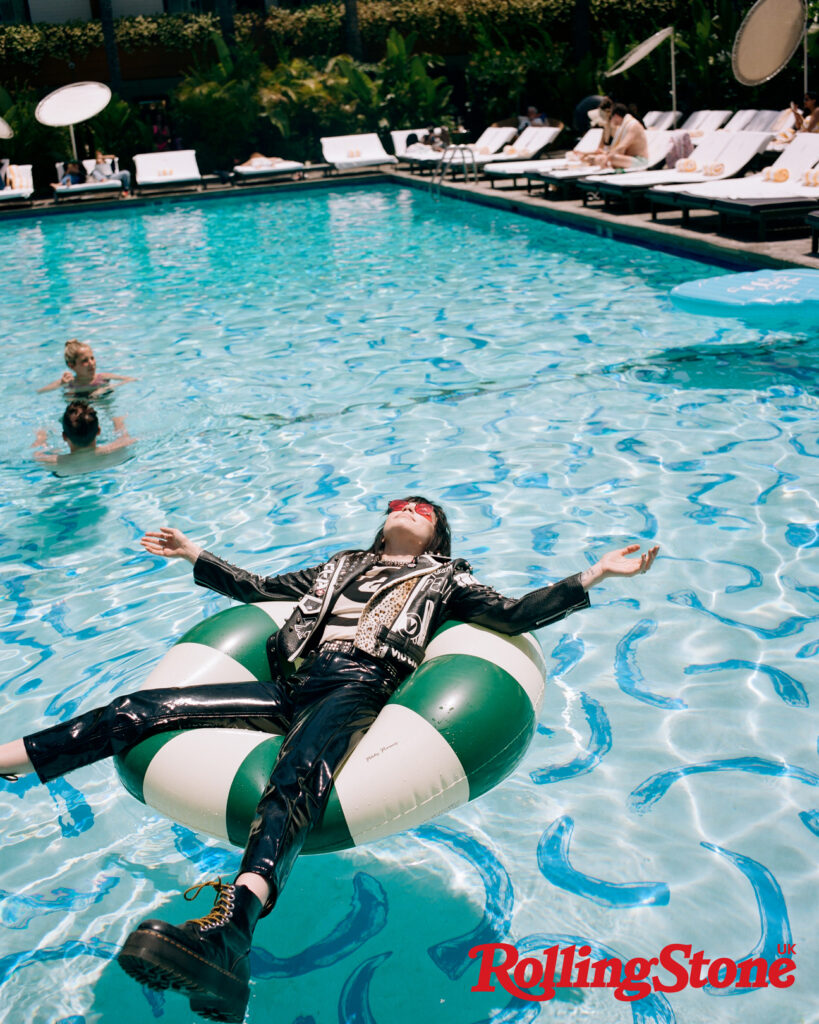
The 1975 frontman Matty Healy always wanted to be a star in America. “At the beginning, we actually spent more time in America than we did anywhere else,” Oborne says. As soon as the band started releasing music, they went out there to tour and have been largely based in the US since by virtue of how much they play and record there, only returning to the UK in some permanent way once the pandemic started.
By way of comparison, it doesn’t take a lot to break on this side of the pond — there are only a few TV channels and major radio stations. In the US, local radio reigns and many states are as big or bigger than the UK. That said, the nature of the music industry there rewards participation.
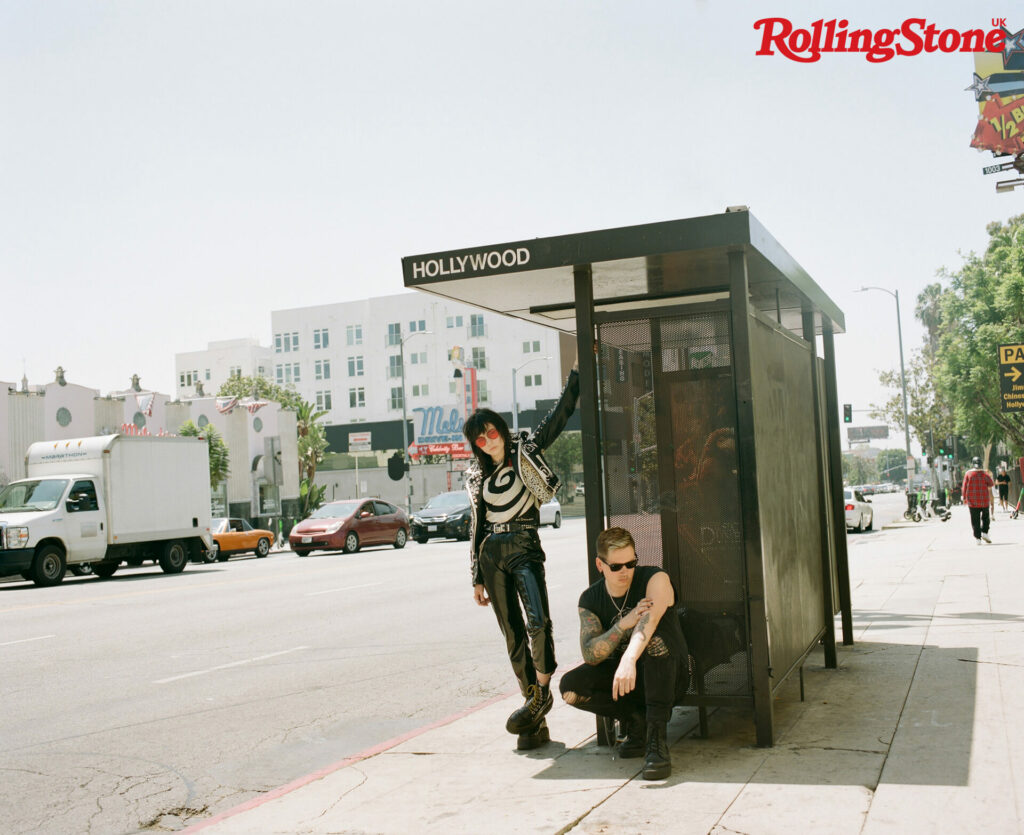
“You have to put loads of work in,” says Oborne of taking bands around radio stations, “but if you go into the station, do interviews, radio sessions, then they play the record. You have to get in first, but I like how transactional it is. If you do the work, the records get played. Of course, they have to react, but I quite like the quid pro quo.”
There’s an element of ego that must be discarded to take on the challenge of America. You can be a famous artist in the UK but completely unknown in the US and should expect to be treated like a brand-new US artist when doing the rounds there. Many artists won’t even attempt it, in part because of that, but also because of the gruelling nature of the tradition.
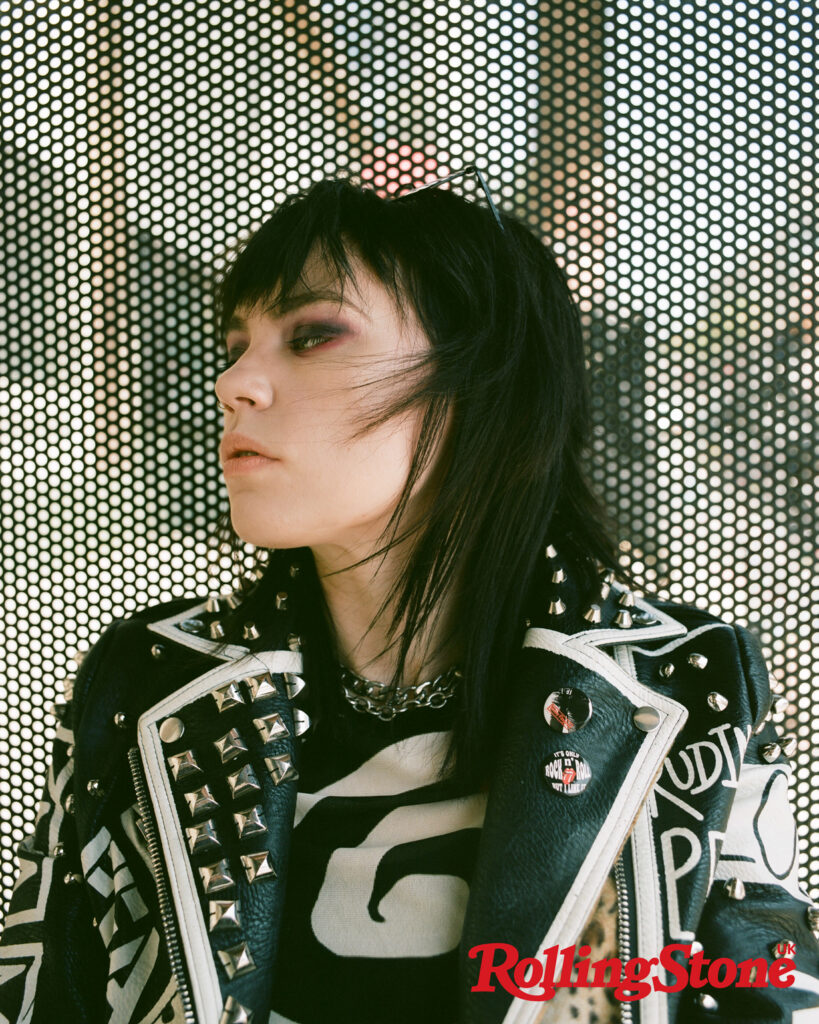
“I’m so willing to do it,” says Mee of the hard graft required. “If we didn’t love it, we’d go the way of so many bands. It’s a brutal schedule and a lot of these people don’t love it enough to carry on doing this.” The effort that goes into doing so can’t be understated, though — it’s a serious endeavour.
Recently, the pandemic and Brexit — as well as the economic climate under the Conservative government in the UK — have made breaking the US far more difficult. There is currently an issue with freedom of movement in the US, too, with a backlog of US visas waiting for approval.
“It’s been three of us in a double bed every night”
— Jim Shaw, Hot Milk
Referring to the offer of a TV appearance for Hot Milk, Weir says, “We were just so lucky that it fell in the middle of a tour run as we were trying to sort the visas for such a long time before. In the old days, you could sort a visa out and do something pretty sharpish. Now, we started sorting the visas six or seven months before and got them by the skin of our teeth. I’ve never seen such a delay.”
She believes that given all this, it’s no longer assumed that an artist will attempt to grow a US audience. “There’s always an ambition but never an assumption because the financial costs involved with doing it are so high now, too,” she says.
An artist’s label will look at streaming stats to see if there’s enough of a pre-existing listenership to warrant it and then you need a UK and US management team — as Hot Milk do — to have a shot. “To break the US market, it’s great to have a team on the ground there because as much as we can understand the market, we’re not in the market,” Weir continues. “To properly drill down and break what is going on there, you have to be there every day, you have to be watching everything. There’s radio, press, the influencer market, which is terrifying over there…”
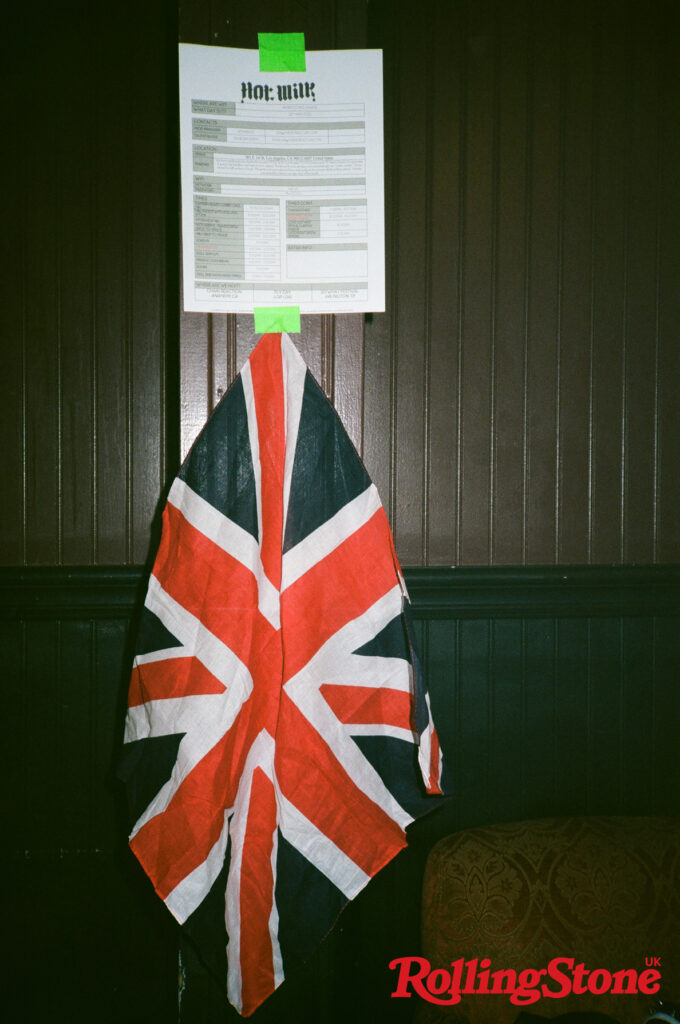
A band like Hot Milk has the appropriate attitude. As the keeper of their social media accounts, Mee noticed a growing grassroots fanbase in the States. She was the one who initiated this tour: “I said to our label, ‘I think there’s something going off in the US. I think now’s the time.’”
As they sit in the sun, Mee takes a video for their Instagram stories. She ruffles her hair and pulls her sunglasses down. “We’re about to do the biggest thing of our careers so far,” she excitedly tells their followers, withholding the information about the TV appearance. There’s no doubt the pair are living their dream, experiencing each moment of their new mission with wonder.
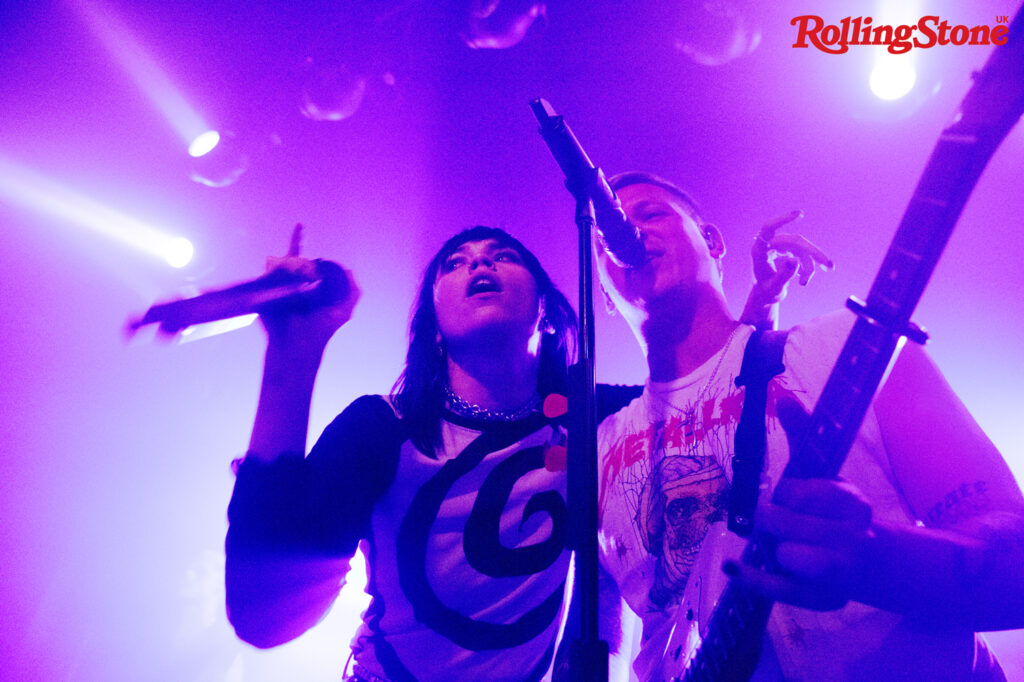
It’s as Oborne said of The 1975 breaking America: “I find that you strive for these things and then they happen. And it’s almost like the pursuit of these things is more rewarding than actually getting them.” It’s the engagement with the grand mythology that you’ll always remember. And it’s simultaneously making a myth of your own with grit and drive that your new fans will be drawn to.
Mee and Shaw sit in the poolside restaurant for a rare proper lunch. They calm each other’s nerves ahead of the rest of the day — the proper TV performance and a show at the Moroccan Lounge near Skid Row — and reminisce about this tour. “It’s been three of us in a double bed, you know, every night. And it’s not been easy,” Shaw says.

Mee shakes her head and grins as she takes his statement a step further: “It’s been shitting in a Pringles can.”
The tribulations began on the journey over when a series of mishaps meant they were last to board. “We finally got on the plane and I turned to you and started crying,” Mee remembers, gesturing at Shaw. “That’s why we’re out here in America post-pandemic and we’re enjoying each and every moment of these shows. You’ve only got one shot and now it’s time to make it for yourselves.”
Hot Milk’s The King And Queen Of Gasoline is out on 5th August via Music For Nations.
Taken from the August/September 2022 issue of Rolling Stone UK. Buy it here.
